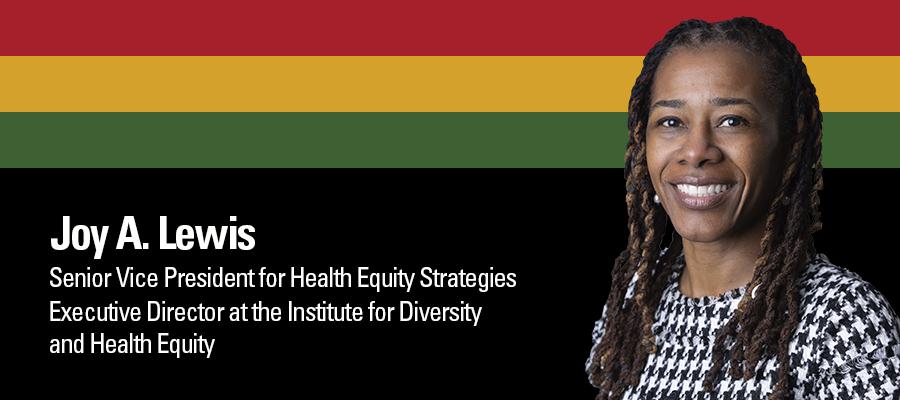Commemorating Black History Month by continuing the crusade for equitable care

The phrase “liberty and justice, for all” from the Pledge of Allegiance is intended to be just that – for all. But our country’s history shows that it hasn’t always been that way, and it still isn’t the case for all of its people 247 years since America’s founding. But the fight to live up to that ideal is very much alive and well, and those fighting to uphold it have more allies than ever before.
February is Black History Month, and this year’s theme is “Black resistance.” This resistance comes in many forms and is largely non-violent. At the height of the civil rights movement, resistance was mostly defined by sit-ins, boycotts, walk-outs and strikes by Black people, white people, and others in the fight against racial discrimination. Our nation’s health care system leaders are increasingly aware of existing gaps in care and outcomes across different patients and are well-positioned to take actions that advance high-quality, equitable care for all, especially those from historically marginalized groups. There is still a long way to go on this journey.
Growing member interest in the Health Equity Roadmap
The AHA continues to make strides in supporting Black health and combating systemic oppression and health inequities. The Health Equity Roadmap will soon celebrate its one-year launch and more than 800 members have expressed interest in participating in it. That’s about one-fifth of our membership, and we hope to reach 1,000 by April 2023, the one-year anniversary of the Roadmap’s launch. We recognize that context matters in this work, so while the Health Equity Roadmap is a national initiative, the roll-out strategy is being implemented on a regional basis.
Investing in Black health care businesses
One of the most innovative things the AHA has done to date is to invest in Black entrepreneurs who are historically undercapitalized and generally do not receive opportunities to present their ideas to executive leadership in hospitals and health systems. We’ve provided early-stage financing to these Black-led companies – Jumpstart Nova, SteelSky Ventures and Seae Ventures – to help improve health care access, quality and affordability.
Health equity research
AHA and the Institute for Diversity and Health Equity are also doing work in the research space, including plans for this year to launch the Health Equity Strategic Learning Collaborative. This collaborative will consist of a network of researchers that will include African American/Black, Hispanic/Latino, Asian American and Indigenous academics, health equity researchers and graduate students. Together, they will work with IFDHE to develop a research agenda that benefits a range of hospitals and health systems to drive research into action.
IFDHE is also serving in the role of sub-contractor on an anti-racism evaluation with the Centers for Disease Control and Prevention and NORC at the University of Chicago. This project will evaluate the impact of anti-racism practices of various hospitals and health systems and the delivery of health care and health equity, and their potential to improve outcomes related to heart disease, stroke and other cardiovascular disease conditions.
These are just a few of the projects the AHA and our members are working on to promote health equity Looking beyond the AHA, the entire health sector – providers, device manufacturers, payers and pharma – must figure out how to unite and align to make significant impacts on health inequities that we want to eliminate. It will require us to let our guards down and be more vulnerable and transparent about what our pain points are, but that’s a good thing. We should learn from each other. No single segment has all of the answers, which is why this work needs to be done coalition-style.
Progress has been made in raising awareness about health disparities of people of color, but now we need action. We must do better to render care with cultural humility and diversify our health care workforce to reflect the demographics of the community being served. To achieve the kinds of seismic shifts we are in pursuit of, this work must be done in collaboration with others. That is how we achieve liberty and justice – for all.
Joy Lewis is AHA’s senior vice president of health equity strategies and executive director of the AHA’s Institute for Diversity and Health Equity.
AHA BLACK HISTORY MONTH TOOLKIT
AHA released its Black History Month social media toolkit, that includes assets to help acknowledge the impactful work of Black doctors and health care workers throughout history. All graphics and messages are ready to be posted to any social media platform (Facebook, Instagram, LinkedIn, Twitter). We encourage you to use these on your social media channels to spread the word about Black contributions to health care.
